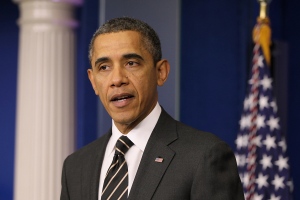Obama to announce $2 billion plan to get US cars off gasoline
 Friday afternoon, President Barack Obama asked Congress to direct our cars, trucks and buses to a realm that doesn’t include gas stations. During a visit to Argonne National Laboratory, he will call for $2-billion energy security trust fund dedicated to research to boost automobile efficiency, enhance battery technology and expand the use of biofuels, among other clean-energy efforts. The ultimate goal: getting the country off oil.
Friday afternoon, President Barack Obama asked Congress to direct our cars, trucks and buses to a realm that doesn’t include gas stations. During a visit to Argonne National Laboratory, he will call for $2-billion energy security trust fund dedicated to research to boost automobile efficiency, enhance battery technology and expand the use of biofuels, among other clean-energy efforts. The ultimate goal: getting the country off oil.Obama had briefly mentioned the idea of an energy security trust in his State of the Union address in January, as a means of providing a long-term, reliable stream of money to researchers. The White House has argued that energy innovation is not only good for cutting carbon emissions to tame global warming, but that it also plays an important part in growing the economy.
Ahead of his March 15 announcement, White House officials offered a preview of the plan’s details. They said that the trust fund’s $2 billion, spread over 10 years, would come from leases of offshore oil drilling. The money for the fund, which would probably be dispersed in the way that the ARPA-E program does it, would come from an increase in expected revenue generated by a more efficient permit approval process and other reforms. One official emphasized that the administration had no intention of modifying existing plans for the outer continental shelf and does not support drilling in the Artic National Wildlife Refuge.
Congress would have to approve the trust fund, and despite the ongoing sequester and other budget battles, White House officials seemed optimistic that the plan would get a bipartisan thumbs-up. The reason: the trust fund idea actually comes from a report by a coalition of business and military leaders and enjoys support from Lisa Murkowski, the ranking Republican on the Senate’s Energy and Natural Resources Committee. But whether bipartisanship also extends to the House of Representatives is another matter.
Weaning the nation off fossil fuels entirely for its transportation needs may not be practical or realistic. But the idea, as one administration official stated, is to “double down” on the opportunities for achieving a cleaner-energy future. As far as bets go, this one at least seems worthwhile.
You can return to the main Market News page, or press the Back button on your browser.

